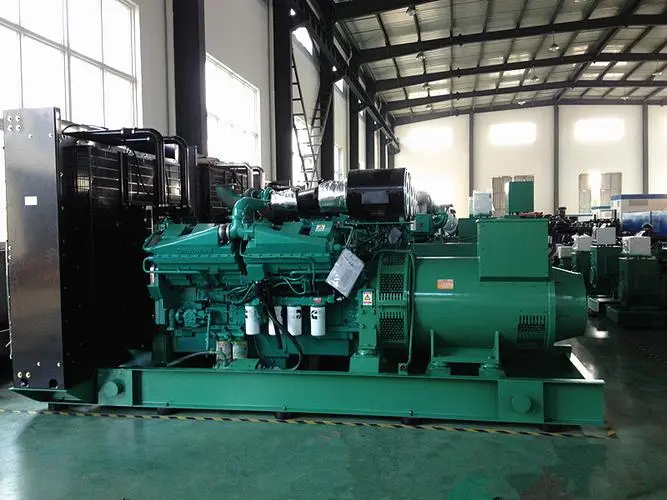Introduction:
Diesel generators have been a reliable source of power for various industries, commercial establishments, and residential areas for decades. These robust machines have the capability to provide uninterrupted power supply during periods of grid outages, emergencies, or in remote locations where access to electricity is limited.
In order to ensure optimal performance and reliability, it is crucial to establish performance standards for diesel generators. These standards serve as guidelines for manufacturers, operators, and maintenance personnel to ensure that diesel generators meet specific criteria and operate efficiently throughout their lifespan.
This article will delve into the importance of setting performance standards for diesel generators, the key parameters that should be considered, and the benefits of adhering to these standards to guarantee reliable and efficient power supply.
1. The Importance of Performance Standards for Diesel Generators:
1.1 Ensuring Safety and Reliability:
Performance standards help ensure that diesel generators are designed and manufactured to meet stringent safety requirements. 500kw diesel generator for remote industrial applications define the necessary safety features, such as automatic shutdown systems, fire suppression systems, and protection against electrical faults, to mitigate potential risks and ensure the safe operation of the generator.
1.2 Enhancing Efficiency:
Performance standards play a crucial role in enhancing the efficiency of diesel generators. These standards establish guidelines for fuel consumption, emissions levels, and noise control, promoting the use of advanced technologies and engineering practices to minimize environmental impact and improve energy efficiency.
1.3 Facilitating Interoperability:
Setting performance standards for diesel generators helps facilitate interoperability between different equipment and systems. These standards ensure that generators are compatible with various appliances, electrical systems, and control mechanisms, enabling seamless integration and efficient utilization of power.
2. Key Parameters for Performance Standards:
2.1 Power Output and Load Capacity:
Performance standards should specify the power output and load capacity of diesel generators to meet the specific requirements of the intended application. These standards should consider factors such as peak demand, voltage stability, and the ability to handle transient loads to ensure reliable and uninterrupted power supply.
2.2 Fuel Efficiency and Emissions Control:
Performance standards should address fuel efficiency and emissions control to promote environmentally friendly operations. The standards should define maximum allowable fuel consumption rates and emission levels, encouraging the use of advanced engine technologies, fuel management systems, and exhaust after-treatment systems to minimize the environmental impact of diesel generators.
2.3 Noise Levels:
Performance standards should include guidelines for noise emissions to minimize the impact on surrounding environments and comply with local regulations. These standards should define maximum allowable noise levels at various distances from the generator and encourage the use of noise-reducing features such as soundproof enclosures, mufflers, and vibration isolation systems.
2.4 Reliability and Durability:
Performance standards should establish requirements for the reliability and durability of diesel generators. These standards should cover aspects such as mean time between failures (MTBF), mean time to repair (MTTR), and design life expectancy. They should also specify the use of high-quality components, robust construction materials, and effective maintenance practices to ensure the longevity and operational readiness of the generator.
2.5 Control and Monitoring Systems:

Performance standards should address the control and monitoring systems of diesel generators to enable effective operation and maintenance. These standards should define the minimum requirements for control panels, instrumentation, alarms, and remote monitoring capabilities, facilitating real-time monitoring, fault diagnosis, and preventive maintenance.
3. Benefits of Adhering to Performance Standards:
3.1 Enhanced Customer Confidence:
Adhering to performance standards assures customers that the diesel generator they purchase or utilize meets the necessary quality and safety requirements. This instills confidence in the product and provides assurance of its reliable performance, thereby building trust between manufacturers, suppliers, and end-users.
3.2 Improved System Efficiency:
Performance standards promote the use of advanced technologies and engineering practices, resulting in improved system efficiency. Diesel generators meeting these standards consume less fuel, emit fewer pollutants, and operate with reduced noise levels, resulting in cost savings, reduced environmental impact, and improved overall system performance.
3.3 Extended Equipment Lifespan:
By adhering to performance standards, diesel generators are designed, manufactured, and maintained to high-quality specifications. This ensures the optimal performance and longevity of the equipment, reducing the risk of unexpected breakdowns, minimizing downtime, and extending the lifespan of the generator.
3.4 Compliance with Regulatory Requirements:
Performance standards for diesel generators often align with regulatory requirements set by local authorities and international organizations. Adhering to these standards ensures compliance with applicable laws and regulations, preventing legal issues and potential penalties associated with non-compliance.
Conclusion:
Setting performance standards for diesel generators is essential to ensure the safe, reliable, and efficient operation of these crucial power sources. These standards address various parameters such as power output, fuel efficiency, emissions control, noise levels, reliability, and control systems. Adhering to these standards benefits manufacturers, operators, and end-users by enhancing customer confidence, improving system efficiency, extending equipment lifespan, and ensuring regulatory compliance.
By adhering to performance standards, the diesel generator industry can continue to provide uninterrupted power supply to support critical infrastructure, industrial processes, and everyday life, while minimizing environmental impact and maximizing energy efficiency.
